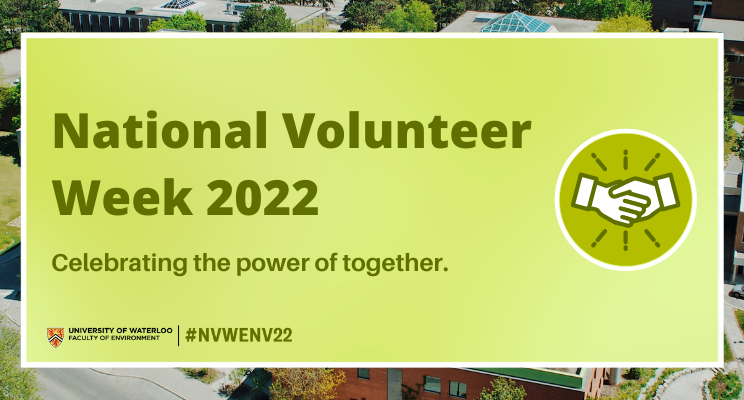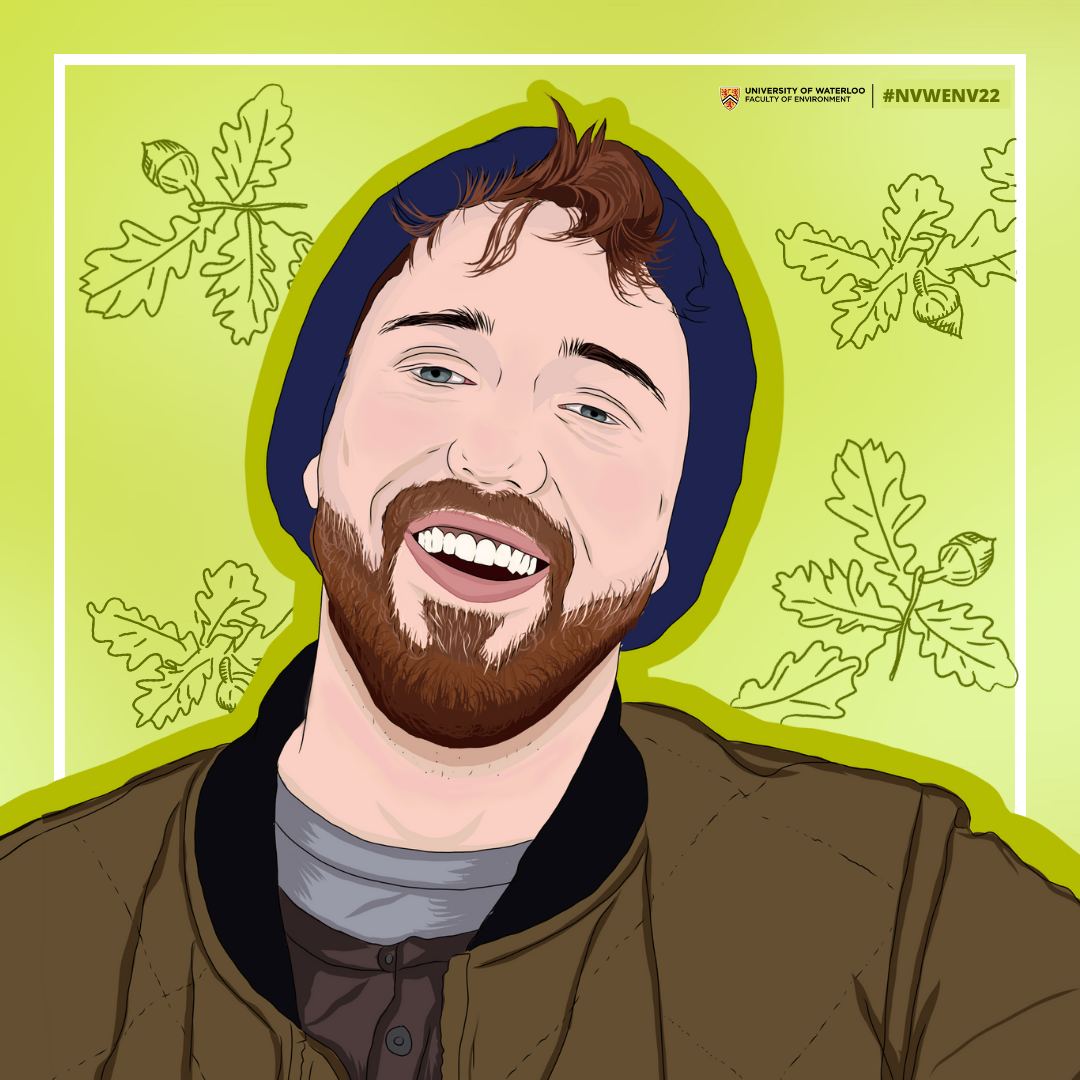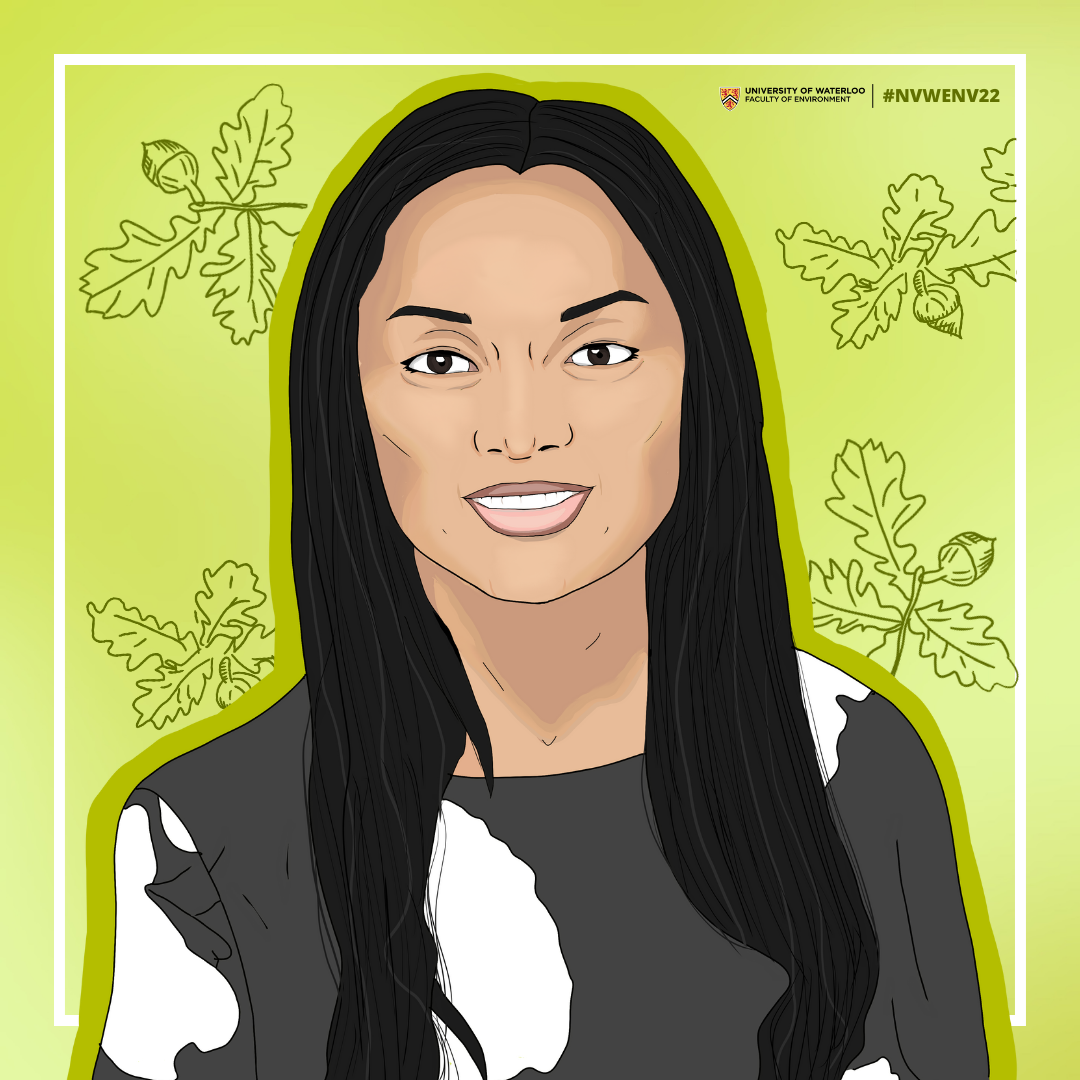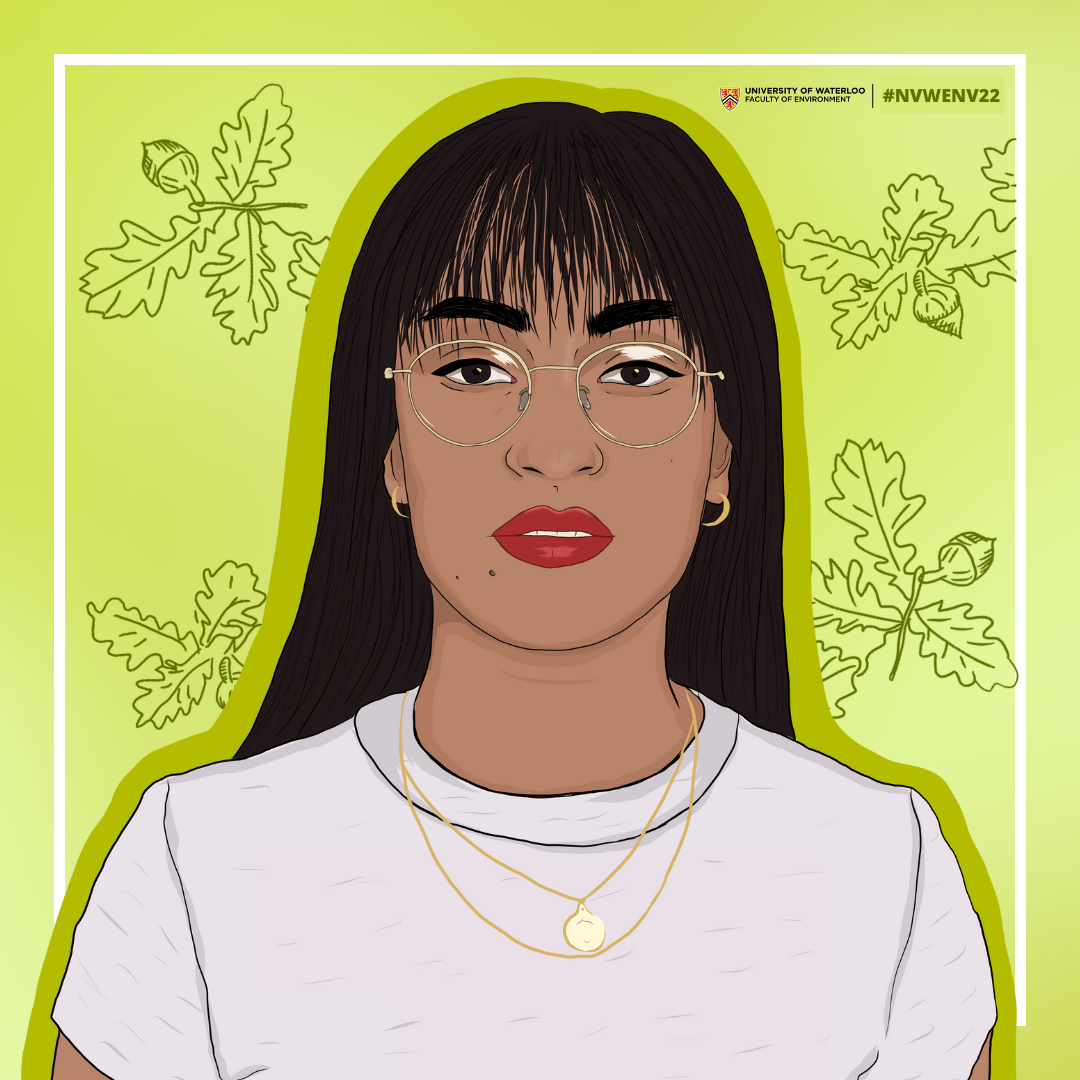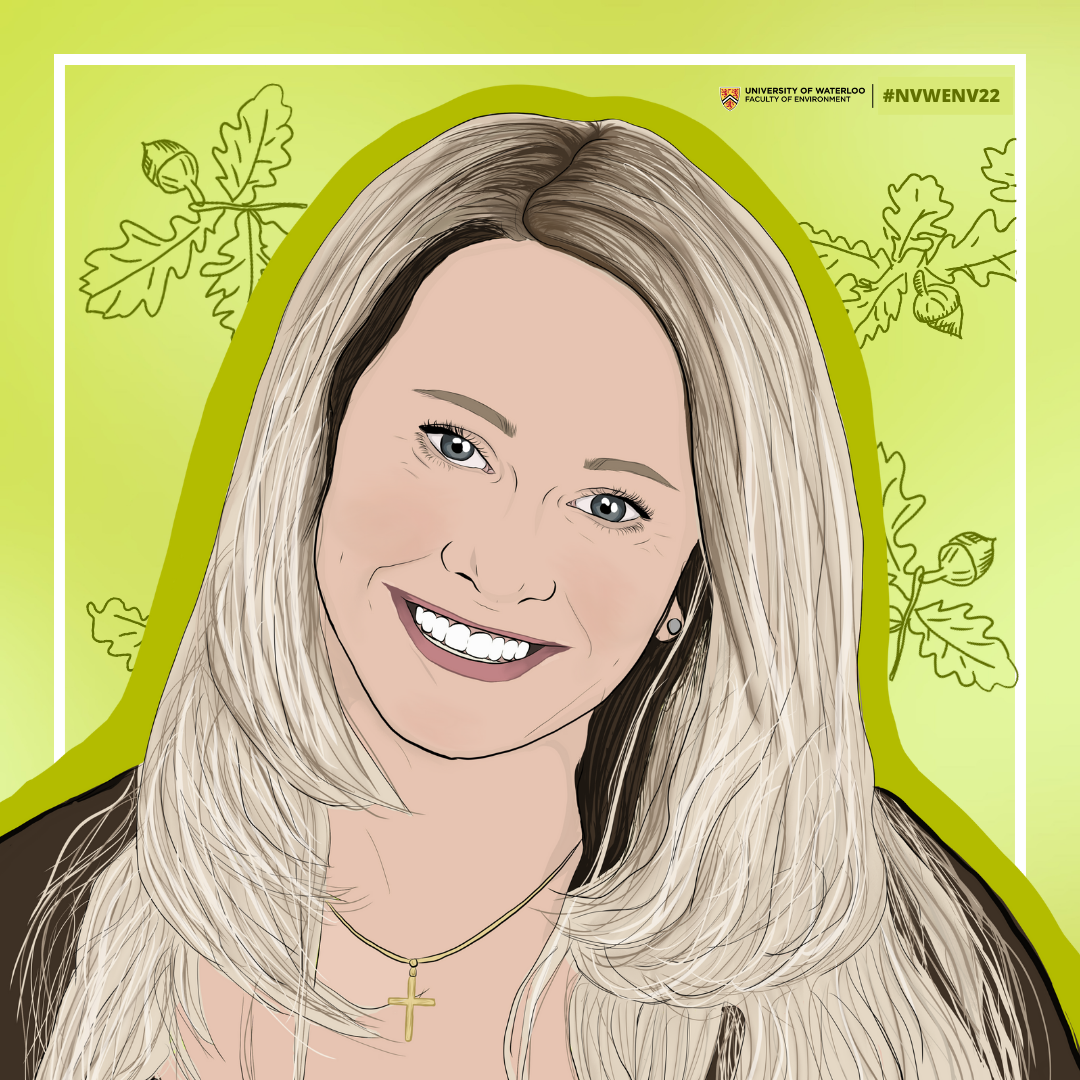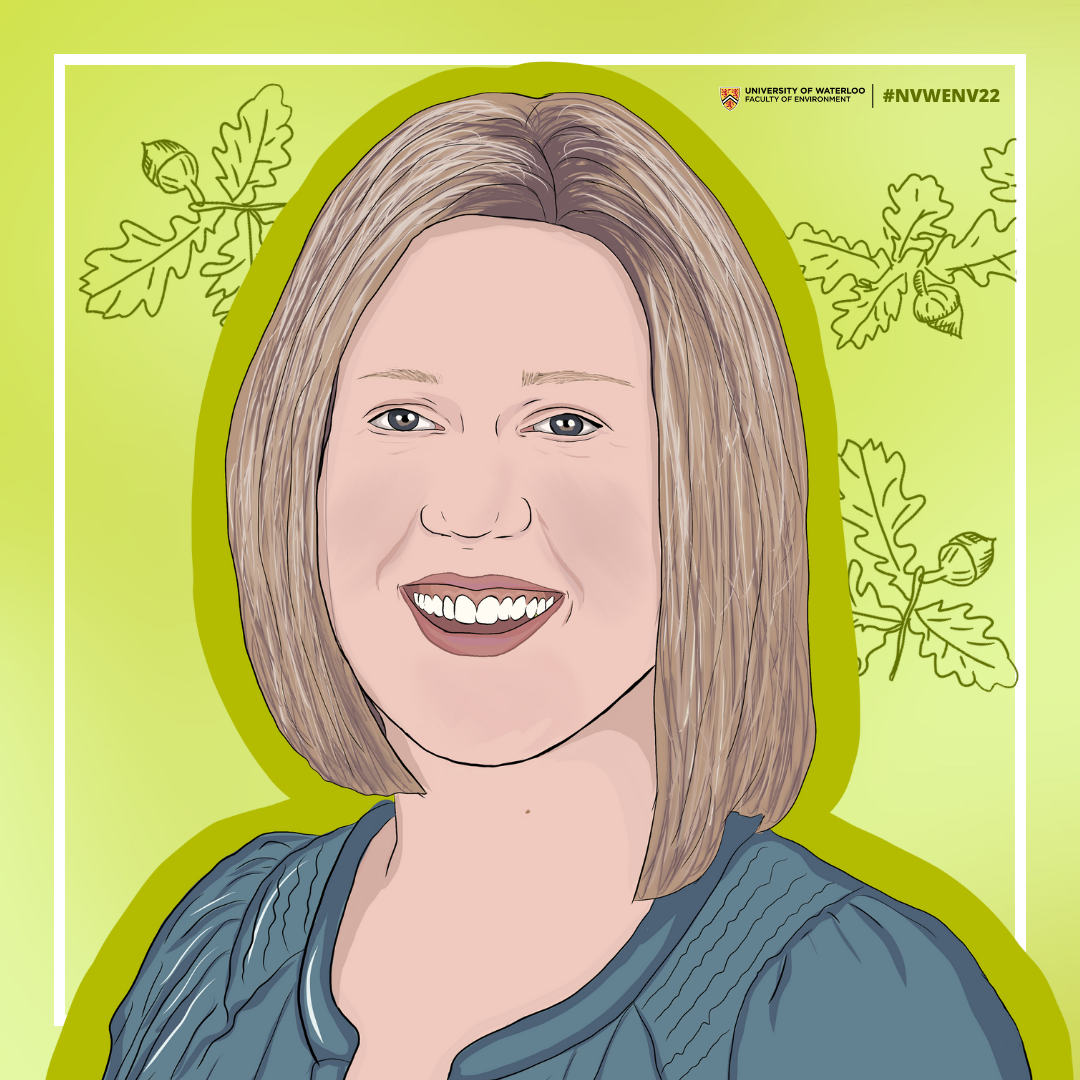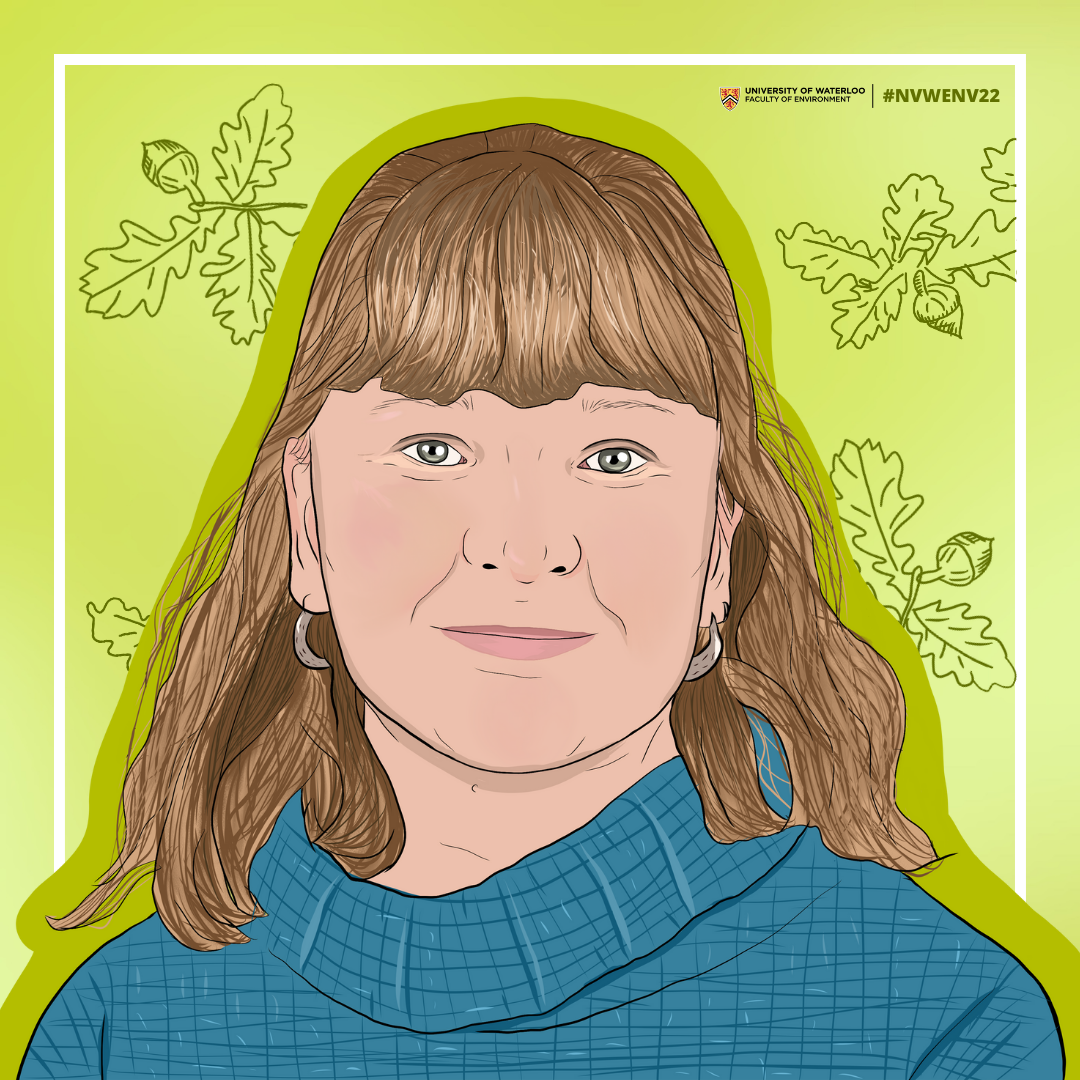Although
you
might
not expect
it,
International
Development
undergraduate
student
Nashmia
was
not always
the
outgoing,
and
well-spoken
person
she
is
today.
In
high
school,
she
preferred
to
stay
behind
the
scenes,
volunteering
for
marketing
and
event
coordination
initiatives.
When
she
started
at UWaterloo
as
an
international
student
from
Saudi
Arabia,
her
friends
and
residence
Don
encouraged
her
to
put
herself
out
there.
By
taking
on
a
variety
of
student
leadership
volunteer
roles
for
orientation,
Environment
Student
Society
(ESS),
amongst
others,
Nashmia
has
a
newfound
sense
of
confidence
and
appreciation
for
people.
“I
used
to
be
the
kind
of
person
that
would
think
‘people
suck’,
but
through
volunteering,
I
learned
that
I
love
people”.
By
giving
her
time
to
team
efforts
at
the
faculty,
Nashmia
met
like-minded
people with
different
skills
and
passions,
who
together
as,
“humans,
come
together
and
create
this
environment”.
At
the
end
of
the
day,
Nashmia,
like
many
of
our
volunteers is
driven
by
the
satisfaction
of
making
a
difference,
“when
you
volunteer
you
see
that
other
people
enjoy
and
gain
from
[what
you
have
done]... we
can
create
an
inclusive
space and
make
people
happy”.
Juli-Ann
and
Jaime
work
together
at
the
Faculty
of
Environment's
Dean's
Office
and
are
fellow
Green
Office
Champion
volunteers.
Juli-Ann,
has
taken
on
many
different
volunteer
roles
in
the
past,
as
a
Business
Development
Generalist
for
Sustainable
Waterloo
Region
(SWR),
Faculty
Green
office
Champion,
and
as
a
money
management
workshop
facilitator
at
the
Grand
Valley
Institution
for
Women.
In
particular,
her
time
working
with
the
women
at
Grand
Valley
was
a
very
humbling
experience.
Coming
from
a
strong
family
and
a
background
in
finance,
Juli-Ann
wanted
to
express
her
gratitude
for
the
blessings
in
her
life,
by
using
her
skills
to
be
there
for
women
who
in
her
words
“are
not
so
different
from
you
and
me”.
Respect
for
those
we
have
the
privilege
of
serving
and
deep
gratitude
to
be
in
the
position
to
help
others
are
the
main
pillars
that
uphold
Juli-Ann’s
ethos
of
volunteering.
“It
is
important
that
when
you
volunteer,
to
understand
what
you
are
signing
up
for,
so
you
can
make
an
informed
decision
to
be
there
for
whoever
is
counting
on
you.”
For
Jaime,
volunteering
has been
a
method
of
getting
to
know
people
in
the
community.
Whether
it
has
been
helping
at
children’s
groups,
corn fests,
or
pancake
breakfasts,
Jaime
notes
that
it
is
“,amazing
how
quickly
you
get
to
know
people
when
you
get
involved.”
Furthermore,
the
traditions
that
often
make
a
community
unique,
are
things
that
require
volunteer support
to
carry
on.
Jaime
loves
getting
to
know
people
and
their
stories
and
one
of
her
favorite
parts
about
volunteering
is
seeing
the
incredible
impact
that
many
individuals
have
when
they
come
together,
each
bringing
their
own
skills
and
interests.
“You
never
know
what
people
can
teach
you
[…]
and
you
never
know
what
a
little
five-year-old
will
come
up
with
or
just
the
way
they
look
at
things.”
Final
words
of
advice
from
Juli-Ann
and
Jaime
on
volunteering?
True
to
her
go-getter
spirit,
Jaime
advises
to
“just
say
yes
but
know
when
to
say
no”
to
volunteer
opportunities
while
Juli-Ann
reminds
us that
volunteering
is
all
about
working
together−
“,you
don’t
need
to
go
it
alone,
ask
for
help.”
Connect
with
Juli-Ann
and
Jaime
on
LinkedIn.
Steffanie
Scott,
Professor,
GEM
Steffanie
Scott
has
been
a
professor
with
the
Faculty
of
Environment
since
2003,
teaching
and
researching
food
systems
out
of
the
Department
of Geography
and
Environmental
Management
(GEM),
with
a
cross-appointment
in
the
School
of
Environment,
Resources
&
Sustainability
(SERS). Steffanie
is
a
highly
engaged
community
member,
taking
on
a
host
of
roles
as
a
board
member
of
the
Food
System
Roundtable
of
Waterloo
Region,
an
advisory
committee
member
of
Community
Shared
Agriculture
(CSA)
Fertile
Ground
Farm,
and
so
on.
"I
do
not think
about
what
I
do
as
volunteering,
but
rather
as
working
towards
social
and
ecological
change
in
society,"
says
Steffanie
",I
feel
that
I
get
as
much
as
I
give
as
an
academic
and
an
instructor. Also
I
have learned
so
much
about
the
community
and
the
champions
in
our
food
system.” So
much
of
what
Steffanie
does
with
her
teaching
is
about
encouraging
a
community-centered
approach to
research.
Through
her
investments
in
the
community,
she
has become
an “information
broker”
who
has
a
pulse
on
“,what’s
going
on,
what
are
people
concerned
about,
and
how
[she]
can
be
proactive
and
how
[she]
can
encourage
others
to
get
involved.” Steffanie
reflected
that
oftentimes
people
can
feel
a
lot
of
anxiety,
depression,
or
isolation
about
the
state
of
the
world
and
its
future
but
like
with
the
community
garden
network
she
is
connected
with
−
by
focusing
on
small
positive
actions
in
our
own
circles,
we
can
plant
seeds
of
hope.
Often
the
first
place
people
look
to
give
their
time
is
through
a
formal role
at
a
larger
non-profit.
However,
as
Steffanie
suggests,
your
path
to
giving
back
can
be
as
simple
as
checking
in
with
people
in
your
community,
seeing
a
need,
and
coming
together
to
be
a
part
of
the
solution.
In
her
neighborhood,
the
Mary
Allen
Trading
Post
Facebook
group
does
just
that,
by
creating
a space
where
people
can
seek
and
lend
items
they
need.
Volunteering
can
take
many
shapes
and
forms,
and
for
Steffanie,
it
has
been
a
beautiful
opportunity
to
become
more
spiritually
grounded
while
exploring
her
connection
to
the
land
and
her
community.
Connect
with
Steffanie
on LinkedIn.
